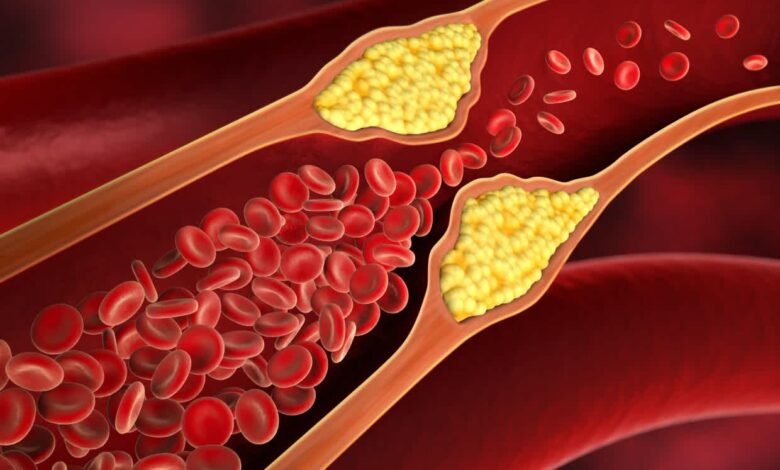High Cholesterol Health Risks: A Comprehensive Guide

High cholesterol levels in the body can lead to a range of health problems, many of which often go unnoticed until they become serious. Cholesterol is a waxy, fat-like substance that is essential for various bodily functions, but when it accumulates in excessive amounts, it can cause significant health concerns. In this blog post, we’ll delve into the problems that an increase in cholesterol can cause in the body and explore ways to prevent and manage them.
1.Cardiovascular Disease:

Elevated cholesterol levels, particularly low-density lipoprotein (LDL) cholesterol, can contribute to the buildup of plaque in the arteries, a condition known as atherosclerosis. This can narrow and harden the arteries, leading to an increased risk of heart disease and related complications.

2. Heart Attack:

When cholesterol-rich plaque in the arteries ruptures, it can lead to blood clot formation, blocking the flow of blood to the heart muscle. This can result in a heart attack, which may have severe and sometimes fatal consequences.
3. Stroke:

Similar to heart attacks, cholesterol-induced plaque can also block blood flow to the brain, causing a stroke. Strokes can result in varying levels of disability, including paralysis and cognitive impairments.
4. Peripheral Artery Disease (PAD):
Cholesterol deposits can also affect the blood vessels supplying the limbs. PAD can cause pain, limited mobility, and, in severe cases, can lead to amputations.
5. Hypertension (High Blood Pressure):

Cholesterol buildup can lead to increased resistance in the arteries, which can raise blood pressure. Hypertension is a significant risk factor for various cardiovascular issues.
6. Gallstones:

Excess cholesterol can lead to the formation of gallstones in the gallbladder, which can cause abdominal pain and other digestive problems.
7. Xanthomas:

These are fatty deposits that accumulate under the skin and are often associated with elevated cholesterol levels. They can be unsightly and, in some cases, painful.
8. Pancreatitis:

In rare cases, high cholesterol levels can lead to inflammation of the pancreas, a condition known as pancreatitis, which can be painful and life-threatening.
9. Reduced Cognitive Function:
Emerging research suggests a link between high cholesterol and cognitive decline. It may increase the risk of conditions like Alzheimer’s disease.
Preventing and managing high cholesterol involves lifestyle changes, such as adopting a heart-healthy diet, regular exercise, and, in some cases, medication as prescribed by a healthcare professional. Regular cholesterol screenings are crucial for early detection and intervention.
In conclusion, an increase in cholesterol levels can lead to a wide range of health problems, particularly in the cardiovascular system. Understanding the risks and taking proactive steps to manage cholesterol is essential for maintaining good health and reducing the risk of serious complications.



